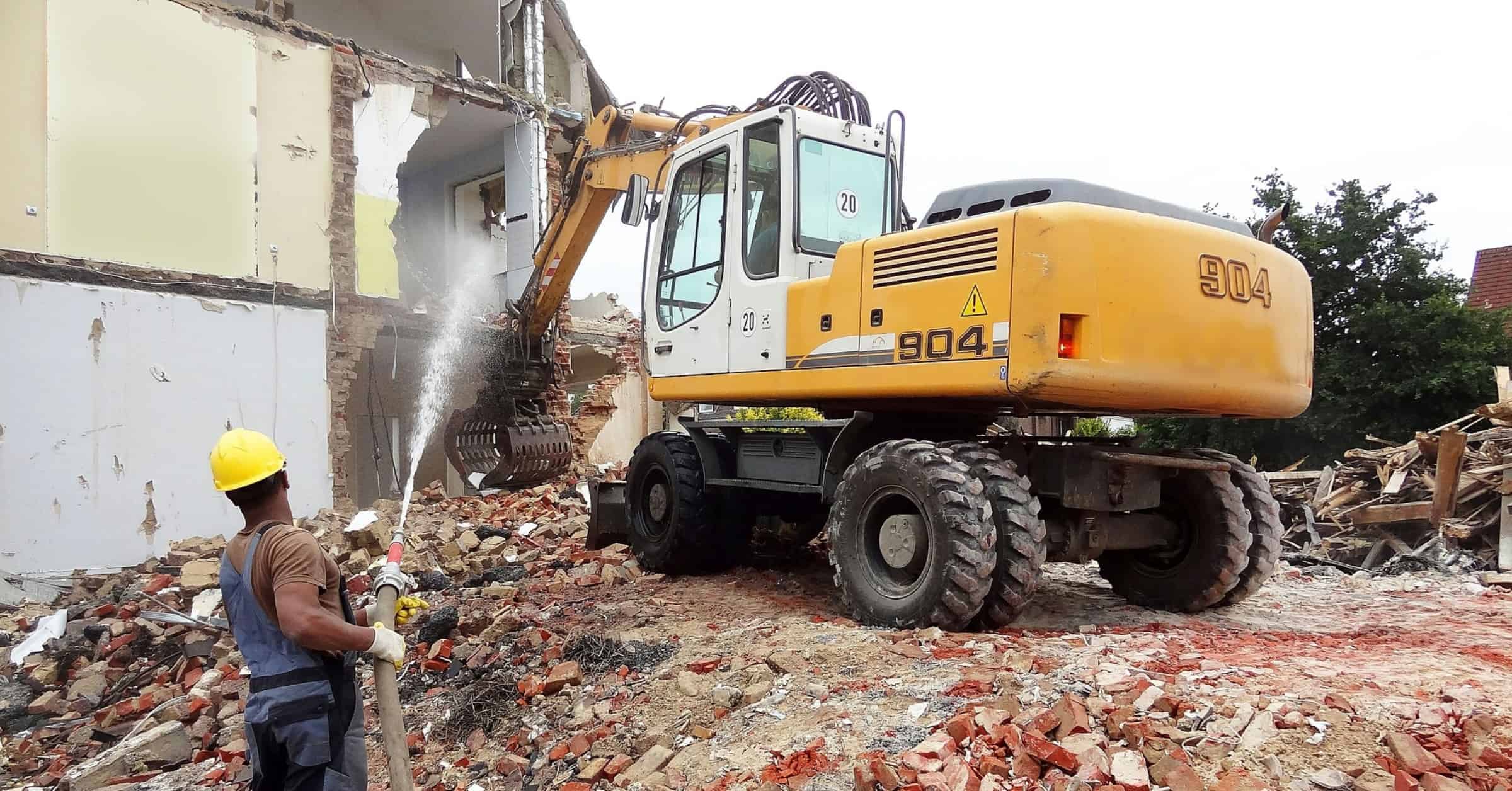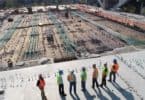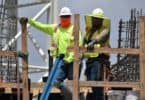Many people think that residential demolition is primarily done on inhabitable houses alone. However, this is not the case because many reasons can trigger residential demolition, including abandonment, code violation, and severe damage.
Demolishing a residential building requires careful orchestration and thorough research. Therefore, the demolition contractor(s) must mind various factors such as employee and environmental safety. If they act otherwise, they risk revocation of their business licenses.
Are you new or slightly experienced in residential demolition? If yes, we’ve made this article to help you learn about various concepts surrounding the subject, including costs and how to start a residential demolition business, just to name a few. So, let’s start with residential demolition basics, shall we?
What is residential demolition?
Residential demolition is the removal or destruction of an entire structure down to its flooring. Therefore, during a residential demolition, the contractors do not maintain any part of the superstructure. In this case, a superstructure means the part of the construction or building above its basement or foundation.
Residential demolition services are reserved for various constructions such as:
- Homes
- Workshops
- Garages
- Docks
- Houses
- Patios, and
- Decks
When do you need residential demolition services?
Perhaps you’re asking when to consult a residential demolition agency. Well, various issues can require you to consult house demolition contractors. Here are some situations that can trigger this decision:
1. Undesirable building
As time goes by, new architectural designs and house plans emerge. You don’t want to stay in a no longer appealing home, right? Well, this is the ideal time to contact house demolition contractors around you to help get rid of such a structure.
Demolishing an old home paves the way for the creation of a new stylish home. Besides, old, undesirable buildings often contain dangerous chemicals such as mercury, lead, and asbestos. As a result, they pose health risks.
What’s worse is that they may have sections that are weak and rotten. These sections, if not demolished, can lead to the eventual collapse of the entire building. Therefore, it’s worth demolishing the building over keeping an old, undesirable construction.
2. After purchasing a plot of land or a home
When you buy new land or home, you’re likely to find unimpressive or unusable structures. Such structures may include detached patios, barns, workshops, or garages. Instead of keeping such “undesirable” constructions, you can contact residential demolition services near you to get rid of them.
3. If the building poses environmental, safety, or health risks
Residential demolition prevents potentially fatal accidents or costly citations. Suppose the building shows dangerous signs, such as weak sections or instability. In that case, you should contact a certified house demolition contractor to get things done.
4. Illegally constructed building
Safety is a fundamental feature when building a residential home. If you find any safety-related issues, including unlicensed construction and integrity issues, you can report illegal residential construction to responsible agencies. These agencies investigate the building, and if they find out that it was constructed illegally, they order its demolition.
How much does residential demolition cost?
The cost of demolishing a residential structure, regardless of its size, starts at $4,000 and increases based on the construction size in square footage. Based on research by Home Advisor, the average cost of residential demolition in the U.S ranges from $2 to S17 per square foot.
However, this number varies based on factors such as the location of the residential home, the construction materials used, and whether the foundation is to be removed or not. Therefore, to determine the actual residential demolition cost, including residential concrete removal, we advise you to contact certified house demolition contractors near you.
How much does residential demolition cost per square foot?
The cost of demolishing a residential building ranges from $2 to $17 per square foot. This amount may vary depending on the construction’s location.
What is the cost of residential demolition in Arizona?
Arizona’s average house demolition cost is $12,236 for houses with a basement and $5,250 for houses without a basement. The residential demolition cost per square foot ranges between $4 and $17. On average, the demolition cost in Arizona is $10.50 per foot squared.
How much does it cost an LLC to do a demolition residential average?
LLC‘s charge residential demolition costs range from $2 and $15 per square foot.
How to estimate the cost of residential demolition?
House demolition contractors generally provide no-cost estimates for substantial demolition projects. Instead, they base their estimates on several factors, such as difficulty or ease of the location, local permit requirements, job size, and specific material handling.
Suppose the commercial or residential building has hazardous material like asbestos. In that case, house demolition contractors charge an additional $2 or $3 per foot squared. They direct these charges to the removal of such materials.
Regarding demolition permit requirements, some states, localities, and cities discourage house demolition. A demolition permit costs between $200 and $10,000. Therefore, such costs should reflect on the demolition cost estimates.
Another factor to consider when estimating the cost of residential demolition is disposal-related costs. During a demolition, house demolition contractors incur the cost of disposing debris to various landfills in the region. Those costs differ depending on the debris type, that is, metal, wood, and concrete.
How can I find out if a residential property was issued permits for demolition?
Usually, permits for demolition are available at the local city hall. Kindly refer to your city’s official government website to get further information.
Interior demolition
Interior demolition is the process of demolition of some sections of the residential building while leaving others untouched. While it may sound easy to do it yourself, this approach is not recommended at all. The case is so because it requires expert skills to prevent the destruction of various facilities in the house, including plumbing, electric lines, or any other remaining sections.
How to price residential remodeling demolition?
Residential remodeling demolition is the same as interior demolition. You demolish a particular section of the building and reconstruct it accordingly. Typically, residential interior demolition cost ranges between $2 and $7 per foot squared. Although much of this cost results from labor, other factors such as inspections, permits, equipment, and residential concrete removal are other vital expenses.
Apart from that, residential remodeling demolition involves a deconstruction process to renovate the demolished area. Therefore, when pricing remodeling demolition, you need to consider various factors such as the location, size of what’s being remodeled. Also, include costs for additional material and labor to be used when restructuring the building.
What is the advantage of residential deconstruction over demolition in California?
Building demolition can get messy if not done professionally. While demolition involves excavation of the entire building, deconstruction. The primary advantage of deconstruction over demolition in California is that some materials are reusable. As a result, it cuts down the cost of deconstruction.
How to start a residential demolition business?
Do you wish to start your own residential demolition services? If yes, consider this quick guide to get started:
1. Understand the sector
The wrecking and demolition industry primarily focuses on demolishing and wrecking structures and buildings. At times, they sell the salvaged material. Take your time to research and understand the industry well.
2. Conduct a feasibility study and market research
Check the psychographic and demographic composition of the area. This will help you determine your potential target customers.
3. Know your main competitors
Conduct research to identify key competitors in the region you’re planning to operate. Try benchmarking and identifying market gaps that you will capitalize on.
4. Determine whether to build from scratch or purchase a franchise
Residential demolition experts argue that building a demolition company from scratch is better and profitable than purchasing a franchise. It enables you to build your brand name far and with minimal restrictions.
5. Identify potential challenges and threats
Every business has its challenges. Before venturing into residential demolition services, assess the potential threats, including unfavorable government policies, social/ demographic factors, and seasonal fluctuations. This analysis will help you develop a mitigation plan to address those challenges once they arise.
6. Select the most appropriate legal entity (S Corp, C Corp, LLC)
If you’re thinking of starting a residential demolition company, the legal business entity you choose determines a lot regarding what your company can achieve. For instance, how big the company can grow. Therefore, consider studying and analyzing the benefits and risks associated with each choice and pick accordingly.
Generally, a Limited Liability Company (LLC) is the best choice of all for obvious reasons. For example, it saves you from any personal liability and enhances flexibility, among other benefits.
7. Select a catchy name for your business
A catchy name will attract potential customers’ attention. It creates a generally positive perception of your business.
8. Identify the best insurance policy for your company
It would be best to find an expert agent to help you determine the best insurance policy that suits your organization’s needs.
9. Get professional certification
Offering professional residential demolition services requires you to be a certified company. Some of the certifications you should have include COR, LEED, and Gold Seal. Furthermore, if you’re planning to deal with hazardous material management, you must acquire the required certifications.
10. Obtain the necessary legal documents
Regardless of the region of operation, you must acquire the legal documents that support your business as valid. Some documents include proof of ownership, taxpayer’s ID, liability and business insurance, and business license, just to mention a few.
11. Raise the required startup capital
This step involves acquiring materials, finance, and equipment needed to kickstart your residential demolition services company. Some sources of startup capital include personal savings, selling shares to interested clients and investors, and applying for loans.
12. Select a suitable business location
Locate residential demolition company near construction sites and away from residential facilities. Selecting this location is key as it determines how well your business performs.
13. Hire the necessary manpower
No organization can work without employees. Find talented employees, potentially from competitors, to help you get your business up and running. They will leverage their experience to help the business grow.
14. Create a strategic marketing plan
This is the last step to building a residential demolition company. It involves creating a plan to market your brand and help it build a reputable identity and extend its awareness. Now, you’re ready to go.
Final Thought
Residential demolition should no longer be a daunting task. You only need to contact professional house demolition contractors within your locality to get things done. We hope that next time you’re thinking about residential demolition, whether starting your own company or determining the prices, you consider the discussed tips.









